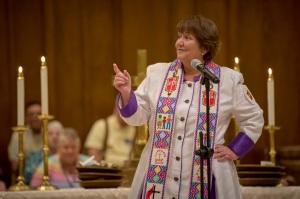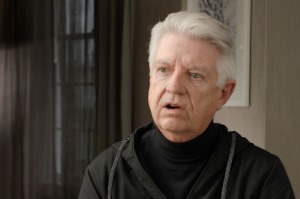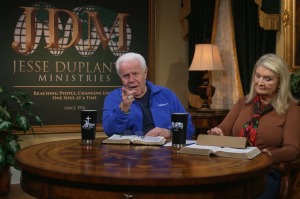Clergy Vs. Layman Board -- Bishops Scuffle with the National Review Board
18 months since the clergy sex abuse scandals exploded, and still the Roman Catholic diocese across the nation are torn between resolving the cases with transparency and accountability, and protecting their priests, assets and reputations.
The Bishops of California, led by Cardinal Roger M. Mahony of Los Angeles unanimously resolved to disregard the surveys for a study that the American bishops themselves commissioned to asses the extent of sex-abuse problems in their church.
Their refusal to cooperate drew sharp criticism from Oklahoma Gov. Frank Keating, who compared the bishops to “La Cosa Nostra” – the hierarchic crime syndicate involved with the mafia.
Keatings heads the National Review Board, which was created last June at the height of the scandals to repair the credibility of the Catholic Church by weeding out molesters and abusers and making recommendations on child protection programs to keep the bishops accountable.
The California bishops eventually agreed to release the information under the pressures of the review board.
Similarly in New York, Cardinal Edward M. Egan told a council of priests that he would not reveal the names of priests accused of abuse or how their cases had been resolved, but announced the names in the glare of publicity.
Such cases reverberated throughout the nation as bishops raised questions or asked for revisions to the survey that was distributed this spring.
"Those bishops who are not cooperating must start acting like pastors and shepherds of their flock, and stop acting like risk assessment officers of insurance companies," said Robert S. Bennett, a lawyer in Washington who leads the review board's task force evaluating the causes of the crisis. "In the church there has been a culture of secrecy, and it has gotten them in a lot of trouble. And the time has come where they have got to understand that it will not work anymore, and that they must be open, they must be transparent and they must be accountable."
Last year, the bishops passed a “Charter for the Protection of Children and Young People” in which a national policy for judging accusations of abuse and removing molesters from the ministry to prevent abuse was drafted. However, despite the imposition of a national policy, the bishops who are to gather at their semiannual meeting on Thursday in St. Louis have interpreted the new rules in each of their 195 dioceses in their own ways. Each of the dioceses, functioning as separate governments, set their own standards and definitions, making the grounds to build upon uneven.
Each diocese is supposed to have its own abuse review board in which a majority of members are not the bishops' employees or allies. In Metuchen, N.J., Bishop Paul G. Bootkoski appointed an abuse victim who belongs to the Survivors Network of Those Abused by Priests, a group disdained by many bishops for its assertive victims' advocacy. In Arlington, Va., review board members resigned when Bishop Paul S. Loverde disregarded their recommendation to remove an accused abuser from ministry.
In the diocese of Orange, Calif., Joelle Casteix, who was abused by a lay teacher at her Catholic high school in the 1980's, was invited to join the reconstituted sexual abuse advisory board, long known as the Sensitive Issues Committee.
"There was open discussion about how to make sure documents did not get into the hands of D.A.'s and plaintiffs' lawyers. There was active discussion about the statute of limitations because they did not want any more victims coming forward and suing," she said of the six meetings she attended; in December, she resigned from the board, citing disillusionment.
Meanwhile, bishops worry the National Review Board may unintentionally undermine faithful bishops. A coalition of bishops, lead by Mahony, is now moving to rid the board of its overseer Keatings.
"All I can say is, from the bishops I've listened to — and several called me this morning — this is the last straw," Mahony said in an interview. "To make statements such as these — I don't know how he can continue to have the support of the bishops. I don't know how you back up from this."
Mahony said he intends to raise the issue of Keating's job performance next week in St. Louis when the U.S. bishops hold their semiannual meeting. However, given the panel's background, a move against Keating now could risk further damage to the church's already troubled public image.
Jane Chiles, a member of the board and the former director of the Kentucky State Catholic Conference, said that several members of the panel held a conference call Thursday to discuss Keating's recent remarks and that she and some fellow board members have "significant concerns" about them.
"It is extremely unhelpful for the heat to be turned up with this use of rhetoric at a time when we are really launching a number of very significant initiatives to assure accountability on the part of the bishops," Chiles said.
By Pauline J.




























